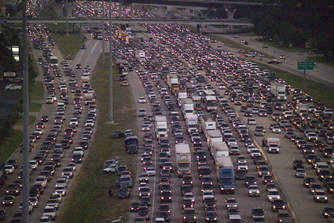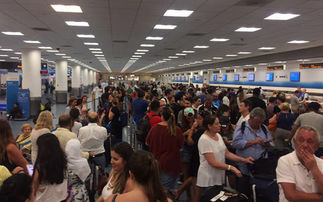 In my lifetime I’ve driven through the tropical storm remnants of a hurricane, experienced several blizzards and have lived through dozens of storms that have spawned tornados. The anxiety that accompanies natural disasters is real and can be very unsettling. That anxiety is amplified when there is no place to go for shelter ahead of the storm, and no place in which to take refuge during or after the storm. Unfortunately this anxiety, which is currently on full display in the wake of Hurricanes Harvey and Irma, is felt and experienced by millions of Americans far too often. In August 2011, I was in Washington, DC when the rare and unusual magnitude 5.8 earthquake hit the area. Once the ground began shaking, many people were immediately worried that a bomb had exploded and that the city was under attack. This was understandable considering that many of the people in the area were also around for the 9/11 attacks a decade earlier. What surprised me, though, was how disorganized and unprepared for an attack (or an earthquake) the nation's capital was 10 years after 9/11 and 6 years post-Hurricane Katrina. There was a mad crush of people attempting to drive home, causing major traffic jams (thus making everyone more vulnerable had it been an actual attack), and cell phone service was hampered with everyone trying to call loved ones in the moments after the quake. Procedures on how to properly evacuate or where to shelter were unclear, leading to further distress. And I kept thinking, had this actually been an attack we would have been in really bad shape. I have a similar feeling now as I watch millions of people scramble to find shelter before Irma and after Harvey. In the aftermath of events like 9/11 and Hurricane Katrina, shouldn’t we be better at disaster sheltering and evacuation efforts as a nation? What (civilian) procedures are in place if we are attacked again??  Now let me say very clearly that for numerous reasons, natural disasters are very difficult to prepare for, and there are thousands of incredible disaster-relief workers who do a tremendous job in bringing assistance to areas that have been ravaged by events like hurricanes. I am grateful for these people and do not disparage them at all. That said, I think it is time for us to have a serious national conversation about what we can do better in disaster relief, such that people aren’t distressed about having no place to go when an imminent storm (such as Irma) is headed their way. There should also be a better way to do communications such that cell phone service is not impeded when large groups of people, gathered in one location, seek to send or receive calls. And what can we do about infrastructure; including places to house or shelter people? This is perhaps where people working in the STEM fields can help out. We can design better levee systems to prevent floods and storm surges in flood vulnerable areas. Through technological innovations we can develop new ways to do telecommunications. In terms of infrastructure, architects and engineers could propose new types of buildings that can better withstand natural disasters, and that can also house large numbers of people. Maybe engineers, geologists and environmental scientists could build safe and environmentally friendly ‘storm shelters’ reminiscent of (but better than) the ‘bomb shelters’ that were created during the early years of The Cold War. Perhaps local and state governments should have yearly evacuation drills in which everyone is required to participate. And what about the dramatic increase in gas prices accompanied by fueling stations running out of fuel (need I also mention the long gas station lines?); is there a way that statisticians can aid these fuel pump pricing and long line situations to make the process affordable and smoother? I don’t have the answers on exactly what to do or who specifically to seek out for help, but I do know that we do not have mass evacuation plan discussions in most cities and states, and I’m convinced that the processes we do have in place can be significantly improved. Just ask the millions of people who were stuck in miles of traffic, or the folks who were at airport counters frantically trying to secure a flight out of recent storm-threatened areas. How many times do we have to have the same distressful natural disaster response before we brainstorm ways to improve the process in earnest? I say that the time is now! -Dr. Boyd ‘The Chemist’
3 Comments
|
Scientific Food For Thought by Dr. Boyd Archives
April 2020
Categories |

 RSS Feed
RSS Feed